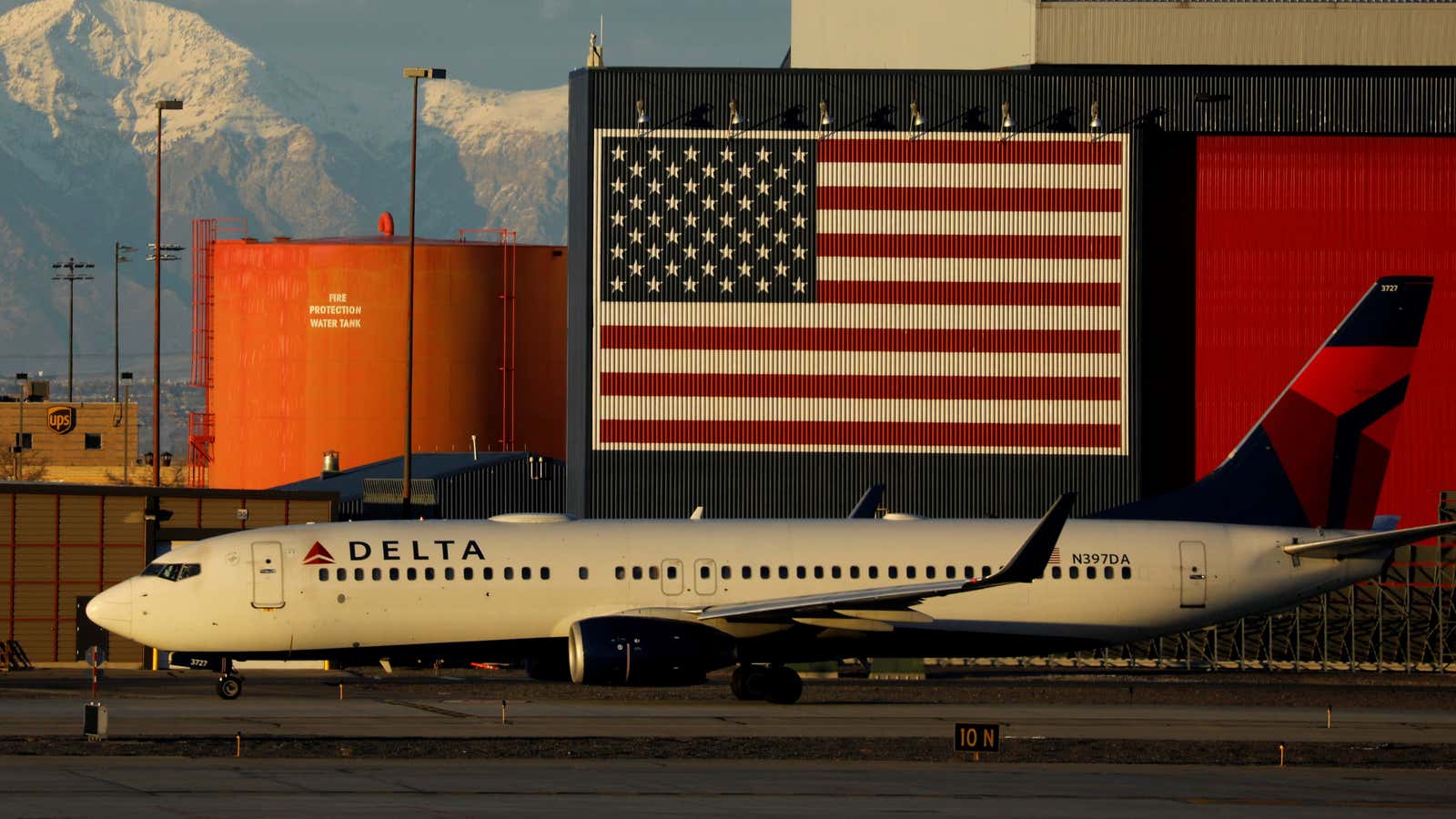The US Federal Aviation Administration (FAA) hasn’t had a proper top official since its last chief departed 14 months ago. That could soon change, with the White House saying yesterday that president Donald Trump will nominate former Delta Airlines executive Steve Dickson to lead the agency.
The name of Dickson to head the aviation regulator was floated earlier this month, but nominating a chief to the agency has become more urgent in the wake of two fatal crashes of the Boeing 737 Max jet, which together have killed close to 350 people. The crashes have raised questions about how well the agency is doing its job of keeping flying safe.
The Department of Transportation yesterday (March 19) announced it has ordered an audit of the FAA over its approval for the 737 Max 8. That will involve putting together a paper trail to help the department’s oversight division “compile an objective and detailed factual history of the activities that resulted in the certification of the Boeing 737-MAX 8 aircraft.”
The first crash, of a Lion Air flight in Indonesia in October, killed 189 people. A second 737 Max in an Ethiopian Airlines flight crashed March 10, killing 157 people.
In the wake of the first crash, a little-known flight system addition drew the attention of investigators. The system, known as the Maneuvering Characteristics Augmentation System, or MCAS, is activated when sensor data indicates a possible stall because the plane is pointed too high, and responds by redirecting the plane’s nose down. A Seattle Times investigation highlighted flaws in the FAA’s safety checks for the system, including a significant change between earlier and later versions of the system that appear not to have been widely communicated in the agency. In addition, prior to the Lion Air crash, the FAA didn’t recommend that the MCAS be included in flight manuals or require specific training. After the crash it issued a directive ordering that flight manuals be updated.
After the second crash, the FAA drew scrutiny for its relatively slow response compared to regulators of other countries in grounding the Boeing jet.
The Washington Post reported (paywall) that the agency became overtaxed with security duties in the wake of the Sept. 11, 2001 terror attacks, and plane certifications became delayed. At the order of Congress, the FAA increasingly delegated some “nuts-and-bolts” certification responsibilities to manufacturers.
Ethiopian and US officials are still investigating the causes of the second crash. Officials from both countries have said there are similarities to the Lion Air crash, without elaborating.
A former fighter pilot, Dickson worked at Delta for 27 years, and in his last role was senior vice president of Delta’s global flight operations, responsible for day-to-day operations and pilot training. He retired Oct. 1. The White House described him as “a strong advocate for commercial aviation safety.”
The FAA’s last chief, administrator Michael Huerta, stepped down in January 2018. Since then, the job has been filled on an acting basis by Trump’s deputy administrator pick, Dan Elwell, a former American Airlines executive and lobbyist for the airline industry. In fact, the FAA’s top three positions are all held by officials in an acting capacity. James Norton, founder of consultancy Play-Action Strategies, which advises companies on getting federal contracts, told Quartz earlier: “When you have interim or acting people for a long period of time, that puts everyone else in an interim role in that chain of command, adding that over two years into the Trump administration is “a long time” to not have permanent management in place at the FAA.
